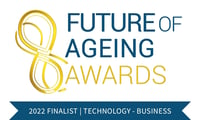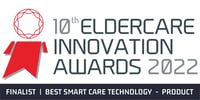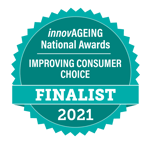Helping to improve resident outcomes

The Aged Care Quality Standards play a crucial role in ensuring that individuals have access to safe and quality aged care services. They set the standard for the level of care older people can expect to receive.
The current Aged Care Quality Standards will be strengthened as part of the new Aged Care Act and regulatory model. These updated standards, which aim to improve resident outcomes, are set to take effect on July 1, 2025.
About the strengthened Quality Standards
The Aged Care Quality Standards are changing from 8 to 7 strengthened Quality Standards, which are:
Standard 1: The person
This Quality Standard defines how providers and workers should treat older people, reflects the new Statement of Rights and is relevant to all Quality Standards.
It defines:
- Dignity and respect
- Individuality and diversity
- Independence
- Choice and control
- Culturally safe care
- Dignity of risk – meaning older people have the right to live how they choose, even if their choices involve some risk.
These foster a sense of safety, autonomy, inclusion and quality of life for older people.
Standard 2: The organisation
This Standard sets the expectations about the quality of care and services that a provider's governing body must meet. The governing body directs the organisation's strategic priorities and promotes a culture of safety and quality. Governance systems and the workforce are critical for safe, quality care.
Standard 3: The care and services

This Standard describes how providers must deliver care and services for all service types. This includes how to support the workforce to ensure effective assessment, planning, communication and coordination.
Standard 4: The environment
This Standard ensures older people receive care and services in a physical environment that is safe and supportive and meets their needs.
Standard 5: Clinical care
This Standard describes the provider's responsibilities to deliver safe and quality clinical care to older people.
Standard 6: Food and nutrition

This Standard outlines residential aged care providers' food and nutrition obligations. Access to nutritionally adequate food is a human right. Food, drink, and dining experience enormously impact a person's quality of life.
Standard 7: The residential community
This Standard directs residential aged care providers to ensure that the community is central to the lives of aged care residents.
Older people must feel safe, have opportunities to do meaningful things and maintain connections with people while living in a residential community.
Preparing for the new requirements of the Strengthened Standards
Adopting comprehensive software solutions, such as our clinical care planning system, mCare, will help your aged care service demonstrate adherence to the new standards.
mCare helps aged care providers stay compliant and gives providers access to all the information they need for ACQSC audits.
With mCare, your organisation will be ready to take on your next audit!
The individual
- mCare is designed with the Care Recipient at the epicentre of the information system.
- The mCare feature ‘Who I Am’, supports capturing and enabling the care recipient’s identity, history, independence, choice, dignity of risk, personal goals and preferences to be highly visible and well communicated.
- Key features include a point-of-care information care system where individual needs and preferences are communicated (and where health care data can be collected) via an easy-to-use icon-driven Care Delivery App. Capturing and communicating the individual’s planned care day / personalised preferences, in addition to a suite of assessments including the ability to communicate an individual’s connections, culture, personal / health needs, preferences and dignity of risk.
- mCare personalisation capabilities in Assessments, Care Plans and Planned Care Day support respectful language, using terminologies of individuals in the ‘first person’ and provide opportunities to capture each individual’s background, identity, culture and diversity to support quality of care and individuality.
The organisation
- The care monitoring feature enables managers to oversee critical information in real-time to facilitate clinical decision-making, such as alerts, risk assessments, care plans, care notes, reports and charts, dashboards, care notes and handover notes.
- The ability to integrate with electronic medication management systems further supports the individual’s holistic needs and quality of care.
- mCare provides the capability to capture important information to support individual needs including identifying advocates and language services to support individuals and organisations with improved outcomes and ease of information at hand.
- mCare provides opportunities to register feedback on compliments and complaints at the point of care. Due to mCare’s transparency of oversight of critical information (real-time documentation) from care recipients, carers, workforce and others regarding feedback can aid in building a picture to formulate review and quicken compliments and complaints review reporting timelines and outcomes and identify continuous improvement opportunities, to support care recipients, representatives, staff and the organisation.
- Incident/Accident Forms in mCare facilitate capturing information regarding incident details, management information, outcomes and open disclosure undertaken.
- mCare facilitates supporting organisations’ governance through using a variety of resources foundational to the Clinical Software System, including; Alerts, Flags, Charts, Reports, Analysis Reports, Incident and Accident Report Forms, and Infection and Wound Records.
- mCare provides a Staff Profile to capture Assessment information to support identifying mutual personal interests and diversity with other staff and care recipients. This supports the workforce and care recipient with positive engagement opportunities.
- mCare provides abilities to capture compliments and complaints at the point of care to document and support feedback and organisational oversight.
- mCare provides a secure information management environment capability with options on access set-up / role access authorities, password requirements, password updates, 2Factor Authentication and Single Sign-On.
- mCare has the Care Recipient at the epicentre, providing opportunities for organisations and staff to deliver quality care through personalisation and inclusivity, by supporting each individual’s preferences and right to communicate their preferences clearly at the point of care.
- Point of care documentation, facilitates a timely reporting of data, reducing organisations and staff’s burden of documentation time at the end of the shift, enabling this time to focus on supporting each Care Recipient to live their best life and be supported by delivering quality care.
- mCare provides an effective assessment and care planning system that offers an ability to personalise and communicate the needs, goals, preferences and health care / clinical care needs and routines of each individual. mCare enables point-of-care information and communication to staff to enhance understanding of the individual to support living their best life.
- mCare offers multiple points to communicate (preferences, risks), prompts/alerts (any action required), initiate reviews (assessment and care planning, clinical care workflows) and handover information, to enable safe, effective and timely care, and to aid staff in meeting each care recipient’s requirement.
- mCare provides a dynamic approach with point-of-care documentation/information, offering the ability to track actions in real-time, which facilitates improving care outcomes, care notes, charting, reporting, analysis, visibility and compliance with meeting the individuals and organisation needs/requirements and limiting downtime to document information at end of shift.
- mCare aids in building partnerships with the individual by improving information availability at the point-of-care.
- mCare is a clinical software system that assists in supporting multidisciplinary teams, capturing information to improve communication of an individual’s assessed needs, planned actions and outcomes.
- mCare’s ‘Who I Am’ feature holds information such as an individual’s preferences as to routines, life stories, likes and dislikes and wishes. This enables staff to be fully aware of how they can optimise each individual to feel a sense of belonging, welcome, heard and respected, safe, and comfortable in the service environment.
- mCare promotes a safe environment by communicating preferences to staff to aid the consumer’s independence, functionality, and enjoyment.
- mCare’s features also ensure effective clinical oversight of risks, including infection prevention and control measures (Infection and Wound Care Records, Infection Registers and Wound Care Summary Reports, Behaviour management and other known risks.
- Communicating Care Plan information and directing care via the Planned Care Day feature within mCare, all at the point of care, enables safe and effective communication of the individual’s expectations, routine and care requirements.
- The Planned Care Day feature has the ability to schedule multiple clinical and non-clinical related actions to direct and prompt staff, whilst providing priority direction to improve outcomes. Icon-driven care and care notes structure allows for ease of use amongst staff for quick interpretation of what needs to be actioned, it also aids users who have English as a second language.
- The flexibility of the Care Plan and Planned Care Day features allows staff to tailor and personalise the requirements for each individual according to preference, need, clinical complexity, end-of-life stage, best practice and personal/clinical risk.
- Diary appointments are also able to be scheduled and communicated at the point of care as to clinical and non-clinical event requirements.
- mCare offers a prompt incident/accident reporting system which can commence at the point of care, enabling timely reporting and commencement of notification, action and/or workflows.
- mCare facilitates effective care governance for care providers by providing a variety of clinical and non-clinical reports, charts, analysis reporting to alert on clinical deterioration, trends, and priority needs/action requirements. In addition, key features include alerts and a flagging system, to prompt action, and a risk-based notification system embedded within the dashboard to aid organisational clinical governance frameworks.
- mCare caters to staff skill mixes. For example, the Planned Care Day feature can schedule specific tasks to the variety of staff roles and enables staff to review action items to their specific role. They can also schedule action items with ease at the point of care, deliver clinical and non–clinical care recipient requirements, to direct staff to priority items/planned actions to support the care recipients’ personal, social, emotional, medical and or clinical support needs.
- mCare provides 24-hour point-of-care information to meet the care requirements for each individual and is not limited to identifying and supporting personal hygiene, dressing, food and fluid intake requirements, risk-based activities, allergies, medical summary, equipment requirements, social, community, emotional or mental health needs/support requirements, mobility requirements, personal and life preferences and clinical need and handover information.
- mCare’s Planned Care Day, Assessments, Care Plan features are flexible and is able to communicate needs, changing needs, goals and preferences at the point of care to support daily living, independence, optimise health, quality of life and wellbeing.
- mCare features like Care Plans, Assessments and Planned Care Day support captures and communicates an individual’s community interests/engagement, social activities preferences and social supports and relationships.
Start your journey with Person Centred Software today!










